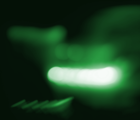Event Info
Contemporary Jazz Legends: Spyro Gyra
Founded in 1974 by altoist Jay Beckenstein Spyro Gyra has consistently been one ...
 8:00pm - 10:30pm Doors at: 7:00pm
8:00pm - 10:30pm Doors at: 7:00pm
 $37 Advance / $40 Door
$37 Advance / $40 Door
Event Description
Founded in 1974 by altoist Jay Beckenstein Spyro Gyra has consistently been one of the commercially successfully pop-jazz groups of the past 20 years. Although originally a studio group, the band became a full-time venture in 1979 and has been touring ever since. Critics love to attack this band's lightweight and rarely changing music, which combines R&B and elements of pop and Caribbean music with jazz but its live performances are often stimulating -- unlike many of its records, which emphasize the danceable melodies at the expense of improvising.
The roots of Spyro Gyra lay in Buffalo, NY, in the early '70s. Beckenstein and his longtime friend, keyboardist Jeremy Wall had been leading a group with a revolving membership; every one of the many members in the band were loosely involved in the local jazz and rock scenes. Around 1974, the group was beginning to gel and cultivate a following. A club owner who wanted to advertise an upcoming appearance by the band asked Beckenstein for the group's name. The saxophonist told him "Spirogira," a word he learned in a college biology course. The owner misspelled the word as Spyro Gyra and the band fell into place, featuring Beckenstein Wall electric guitarist Chet Catallo bassist David Wolford drummer Eli Konikoff and percussionist Gerardo Velez Not long afterward, the group added keyboardist Tom Schuman
Spyro Gyra independently funded and recorded their debut album, releasing the record on the local independent label Amherst in 1976. The record slowly became a success and Amherst sold the rights to the band to Infinity Records a division of MCA Morning Dance their first album for Infinity was released in 1979. The record became a major hit, spawning a Top 40 single with "Morning Dance" and going platinum. In the wake of the record's success, Wall retired from live performance, leaving Schuman as the group's main keyboardist; Wall stayed with the band as an assistant producer and occasional composer.
Morning Dance firmly placed Spyro Gyra as one of the most popular artists in contemporary jazz and throughout the '80s, their popularity continued growing. Their albums were consistent best-sellers, and their concerts often sold out. In 1983, vibraphonist/marimba player Dave Samuels -- who had played on several of the group's albums -- became a full-fledged member of the band. Over the course of the '80s, the membership of Spyro Gyra fluctuated, but Beckenstein and Schuman remained at its core, keeping the group's signature sound intact.
In 1990, MCA s jazz roster was absorbed by GRP so Spyro Gyra switched labels, releasing Fast Forward their first album for GRP later that year. In 1993, Samuels left the touring band, but he continued to play in the studio. By the late '90s, the band featured Beckenstein Schuman Julios Fernandez Joel Rosenblatt and Scott Ambush and released Got the Magic in 1999. Two years later the band moved to the Telarc-affiliated Heads Up label and released In Modern Times in 2001 followed by Original Cinema in 2003. Drummer Rosenblatt left the band and was replaced by Ludwig Afonso for 2004's Deep End.
LATELY
Thirty-one years and 27 albums in (not including compilations), urban contemporary jazz unit Spyro Gyra are playing with the funky inspiration and clever melodic and rhythmic invention that have made them synonymous with the genre, but that they haven't displayed on their own recordings for some time. Beckenstein and his four colleagues have the independent industry-wide cred to back up his claim. Spyro's latest CD which is currently #9 most selling Jazz CD on Billboard, Good To Go-Go, due in stores NOW, arrives on the heels of a GRAMMY nomination (Best Pop Instrumental Album) for their previous record, Wrapped in a Dream, released in 2006. Clearly, the three decades since those early days have not touched this band’s creative and competitive edge. The sheer edge and shifty, even knotty melodic ideas on "Good to Go-Go" feel adventurous in contrast to the records they've made since the beginning of the decade where they've fused smooth jazz to some Caribbean, Spanish, and other kinds of world music as well as written and recorded with pop vocalists. The adventure here is in the groove itself.
Venue
919 Douglas
Bar / Nightclub
Capacity577
Closed / Inactive

